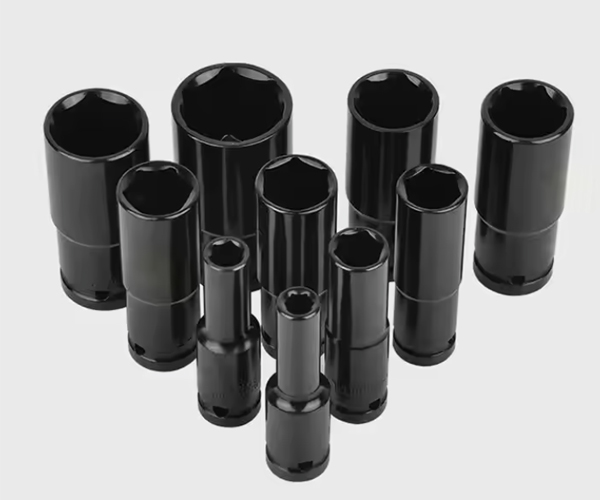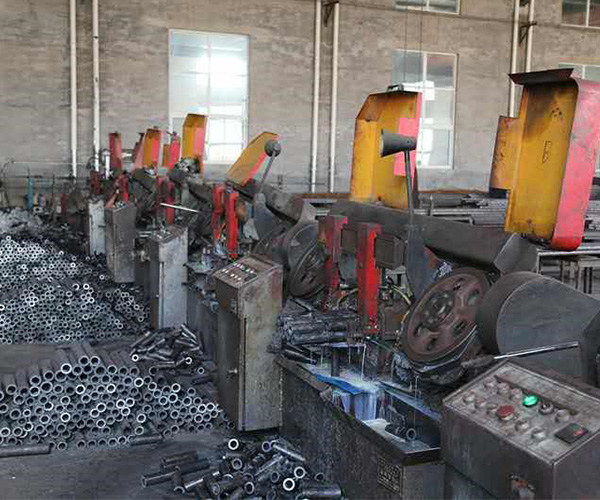Introduction
Starting a hardware store can be an incredibly rewarding venture. With a growing demand for DIY projects, construction supplies, and repair tools, hardware stores are essential for both homeowners and professionals. Whether you’re looking to cater to weekend DIY enthusiasts or support contractors with quality supplies, the hardware business offers a solid opportunity to serve your community while building a profitable business.
This guide is designed to walk you through every step of starting your hardware store, from planning your business to scaling it for long-term success. By the end of this article, you’ll have a clear roadmap to launch and manage a thriving hardware store. Let’s dive in!
Planning Your Business
Define Your Business Concept
The foundation of any successful business is a strong concept. Begin by clarifying the purpose of your hardware store. Are you targeting contractors, DIY enthusiasts, or both? Decide if you want to specialize in a niche, such as gardening tools, construction supplies, or power tools. Specializing can set you apart from competitors and make marketing efforts more focused.
Identify your target audience. For example, a store in a suburban area may cater primarily to homeowners and weekend warriors, while one in an industrial zone may attract contractors. Knowing your audience helps you select inventory that aligns with their needs.
Conduct Market Research
Understanding the market is crucial. Start by researching the demand for hardware stores in your chosen location. Use tools like Google Trends or local business directories to identify gaps in the market. Visit competing hardware stores to assess their strengths and weaknesses.
Analyze the demographics of your area. Are there growing residential areas that need DIY supplies? Are there industries or construction projects nearby that could require bulk purchases? Market research provides insights into potential opportunities and challenges.
Developing a Business Plan
A business plan is your roadmap. It outlines your goals, strategies, and how you intend to achieve them. Include the following in your plan:
- Mission and Vision: Why does your hardware store exist, and what do you want to achieve?
- Objectives: Set measurable goals, such as revenue targets or customer acquisition milestones.
- Financial Projections: Estimate startup costs, expected revenue, and break-even points.
- Marketing Strategies: Outline how you will attract customers through online and offline channels.
- Operations Plan: Detail how you’ll manage inventory, staffing, and logistics.

Setting Up Your Hardware Store
Choosing the Right Location
The location of your hardware store can significantly impact its success. Select a spot that is easily accessible to your target audience. For urban areas, prioritize locations near busy intersections or neighborhoods with high foot traffic. In rural or suburban areas, choose spots close to residential zones where homeowners frequently need tools and supplies.
Visibility is key. A storefront facing a main road with ample parking is ideal. Additionally, consider the proximity of your competitors. While some competition can indicate demand, avoid setting up shop too close to an established, well-known store unless you offer a unique value proposition.
Legal and Licensing Requirements
Before opening, ensure your business complies with all legal and regulatory requirements. This involves:
- Registering Your Business: Choose a legal structure—sole proprietorship, partnership, LLC, or corporation—based on your needs.
- Obtaining Permits and Licenses: Research local requirements, such as zoning permits and sales tax permits.
- Insurance: Get liability insurance to protect your store against accidents, theft, or other risks.
Consult a legal professional or business advisor if you’re unsure about the specifics in your region.
Store Design and Layout
Your store’s layout should prioritize customer convenience and maximize sales. Begin with an open and inviting entrance. Inside, categorize products logically. For instance, group power tools, gardening tools, and plumbing supplies in clearly marked sections.
Use shelving that allows customers to browse easily and see products at eye level. Create an organized backroom or storage area to stock extra inventory. Additionally, leave space for promotional displays to highlight seasonal items or special deals. A well-designed store not only attracts customers but also enhances their shopping experience, encouraging repeat visits.
Building Supplier Relationships
Finding Reliable Suppliers
Reliable suppliers are the backbone of a hardware store. Start by identifying wholesalers or manufacturers that offer quality products at competitive prices. Attend trade shows and industry events to connect with potential suppliers.
For hardware stores, sourcing locally can reduce shipping costs and ensure quicker deliveries. However, international suppliers, especially from countries like China, may offer more cost-effective options. Always vet suppliers thoroughly by checking reviews, requesting samples, and visiting their facilities if possible.
Negotiating Supplier Contracts
Strong negotiation skills can save you significant money. When discussing contracts, consider:
- Bulk discounts for larger orders.
- Flexible payment terms.
- Return policies for unsold or defective items.
Building long-term relationships with suppliers can lead to better deals and priority service.
Inventory Management Systems
Managing your inventory efficiently prevents stockouts or overstocking. Invest in inventory management software that tracks stock levels, identifies best-sellers, and notifies you of low inventory. Tools like QuickBooks or Zoho Inventory can streamline this process.
Keep a balance between staple products (e.g., hammers, nails, and screwdrivers) and niche items (e.g., specialized power tools). Regularly review sales data to adjust your inventory according to customer demand.
Financial Planning and Budgeting
Startup Costs Breakdown
Starting a hardware store requires a significant initial investment. Common costs include:
- Rent/Lease: Costs vary based on location size and demand.
- Initial Inventory: Allocate a substantial portion of your budget for high-demand items.
- Fixtures and Equipment: Shelving, cash registers, POS systems, and lighting.
- Licenses and Permits: Costs depend on local regulations.
- Marketing: Initial promotional efforts, such as ads and signage.
Funding Your Store
Explore different funding options:
- Personal Savings: The simplest route if you have sufficient funds.
- Business Loans: Approach banks or credit unions for small business loans.
- Investors: Pitch your business plan to potential investors for funding in exchange for equity.
Prepare detailed financial projections to build trust with lenders or investors.
Ongoing Financial Management
Once your store is running, maintain a robust financial tracking system. Use accounting software to monitor income, expenses, and cash flow. Regularly review your budget and look for cost-saving opportunities without compromising quality.
Marketing and Branding
Creating Your Brand Identity
A strong brand identity makes your hardware store memorable. Start by creating a name, logo, and slogan that resonate with your target audience. Use colors and fonts that reflect professionalism and reliability.
Position your store as a go-to solution for your customers’ needs. For example, emphasize quality, expertise, or affordability in your branding.
Marketing Strategies to Attract Customers
Leverage both online and offline marketing channels:
- Online: Create a professional website, optimize it for local SEO, and maintain active social media profiles. Offer how-to guides or project inspiration on platforms like Instagram or Pinterest.
- Offline: Distribute flyers in your community, sponsor local events, or collaborate with other businesses.
Offering Promotions and Loyalty Programs
Run seasonal promotions to clear out old stock or highlight new arrivals. Introduce a loyalty program to reward repeat customers, offering discounts or free items after a set number of purchases.
Staffing and Training
Hiring the Right Team
Your employees are the face of your hardware store. Look for individuals with a blend of technical knowledge and strong customer service skills. Hiring locals familiar with the community can be an added advantage.
Staff Training Programs
Invest in comprehensive training programs. Train employees to:
- Understand product features and benefits.
- Provide exceptional customer service.
- Upsell complementary products without being pushy.
Building a Positive Work Culture
Foster a team-oriented environment by encouraging open communication, recognizing achievements, and providing growth opportunities. Happy employees lead to better customer experiences.
Opening and Scaling Your Hardware Store
Grand Opening Ideas
A successful launch can set the tone for your business. Host a grand opening with:
- Discounts or freebies for the first customers.
- Live demonstrations of popular tools or products.
- Community activities like raffles or workshops.
Monitoring Initial Performance
Use customer feedback, foot traffic, and sales data to refine your approach. Identify best-selling items and areas needing improvement.
Scaling Your Business
As your store grows, consider expanding your offerings, such as adding new product categories or services like tool rentals. Explore e-commerce to reach a broader audience, or open additional locations in underserved areas.
Overcoming Challenges
Common Challenges Faced by Hardware Stores
- Competition with Large Retailers: Focus on personalized service and specialized inventory.
- Adapting to Trends: Stay updated on innovations in tools and equipment.
Tips for Problem-Solving
- Build customer loyalty through excellent service.
- Use technology to streamline operations and enhance customer experiences.
Sourcing Products: Finding Suppliers for Your Hardware Store
Sourcing the right products from reliable suppliers is critical for ensuring your hardware store meets customer expectations and remains profitable. This involves identifying trustworthy partners, negotiating favorable terms, and establishing an efficient supply chain. Let’s break down the process step by step.

Types of Suppliers for Hardware Stores
When sourcing inventory, you’ll need to decide which type of supplier best suits your needs:
- Local Distributors and Wholesalers:
- Pros: Faster delivery times and smaller minimum order quantities. Ideal for new businesses with limited storage space or capital.
- Cons: Marginally higher costs compared to direct manufacturers.
- Manufacturers (Direct Sourcing):
- Pros: Lower per-unit costs and opportunities for customized products or private labeling.
- Cons: Higher minimum order quantities and longer lead times, especially if sourcing internationally.
- Specialized Suppliers:
- These suppliers focus on specific product categories, such as power tools, plumbing fixtures, or electrical equipment. Working with multiple specialized suppliers ensures a diverse product selection.
- Dropshipping Suppliers:
- Pros: Minimal upfront inventory investment and reduced storage costs.
- Cons: Limited control over shipping times and product quality.
How to Find Reliable Suppliers
- Research Online B2B Marketplaces:
Platforms like Alibaba, Global Sources, and ThomasNet connect retailers with manufacturers and distributors. Filter suppliers by reviews, product range, and certifications to ensure reliability. - Attend Trade Shows and Expos:
Hardware trade shows like the National Hardware Show (USA) or Canton Fair (China) are excellent venues to meet potential suppliers, compare offerings, and negotiate deals in person. - Join Industry Associations:
Many trade associations provide directories of vetted suppliers. Membership often includes access to exclusive networking events. - Leverage Local Connections:
If you plan to prioritize local suppliers, reach out to regional wholesalers and distributors. They may offer flexible terms for nearby businesses. - Evaluate Reviews and Referrals:
Seek referrals from other business owners or read reviews on supplier directories. Reliable suppliers will have a track record of timely deliveries and consistent quality.
Key Criteria for Evaluating Suppliers
Before partnering with a supplier, assess them against these factors:
- Product Quality: Request samples to ensure the items meet your standards. If a supplier refuses to provide samples, it could indicate unreliability.
- Pricing and Discounts: Compare quotes from multiple suppliers. Look for bulk discounts and competitive per-unit costs that allow for profitable markups.
- Minimum Order Quantities (MOQs): Choose suppliers with MOQs that align with your store’s size and budget.
- Lead Times: Confirm delivery timelines to ensure you can meet customer demands, especially for seasonal or high-demand products.
- Certifications and Compliance: Verify that suppliers comply with industry standards, such as ISO certifications or local regulations.
Building Strong Supplier Relationships
- Negotiate Mutually Beneficial Contracts:
- Agree on clear payment terms, including advance payments, credit terms, or payment schedules.
- Specify return policies for defective or unsold items.
- Maintain Regular Communication:
Keep an open line of communication with your suppliers to stay updated on new products, price changes, or potential delays. - Consolidate Orders:
Whenever possible, bundle orders for multiple products to reduce shipping costs. - Pay Promptly:
Timely payments strengthen relationships and can lead to priority treatment or better deals in the future.
Inventory Management Tips for Sourced Products
Efficient inventory management ensures your store remains stocked with the right products without overburdening cash flow or storage space:
- Use inventory management software to monitor stock levels and sales trends.
- Rotate stock regularly to minimize losses from unsold or expired items.
- Analyze seasonal demand to plan ahead for peak periods like holidays or project seasons.
Sourcing Internationally: Things to Consider
If you decide to source products internationally, here are some critical considerations:
- Shipping Costs and Import Duties:
Account for shipping, customs fees, and taxes when calculating product costs. - Regulations and Certifications:
Ensure all imported products comply with local safety standards. For example, tools may need to meet specific electrical or mechanical certifications. - Lead Time and Logistics:
Factor in the extended delivery times associated with international shipping. Partner with a reliable freight forwarder to handle logistics efficiently.

Conclusion
Finding and sourcing products for your hardware store requires diligence, research, and negotiation. The right suppliers will not only provide quality products but also become long-term partners in your business’s success. By focusing on supplier reliability, cost-effectiveness, and efficient inventory management, you can ensure a steady flow of products that keep your customers satisfied and your hardware store thriving.
Partner with KOLARWIN: Your Success Starts Here
Starting a hardware store can feel overwhelming, but you don’t have to do it alone. At KOLARWIN, we are dedicated to empowering hardware store owners with premium-quality tools and reliable support.
How We Can Help Your Hardware Store Thrive
- Comprehensive Tool Selection: From hand tools to car repair kits and DIY essentials, we have everything your customers need.
- Customized Branding Solutions: Stand out with private labeling and OEM services designed to elevate your brand.
- Global Reach, Local Expertise: We’ve successfully partnered with stores across North America, Europe, and beyond.
- Competitive Pricing: Boost your bottom line with our factory-direct pricing and wholesale options.
- Reliable Supply Chain: Rest easy with our proven logistics and on-time delivery.
Start Your Hardware Store Journey Today
Let us be your trusted partner as you build and scale your business. Whether you’re sourcing tools, planning your inventory, or expanding your product range, KOLARWIN is here to help.
📞 Call Us Now: +86-139-2948-2960
📧 Email Us: sales@kolarwin.com
🌍 Learn More: www.kolarwin-tools.com
Join the growing network of successful hardware store owners who trust KOLARWIN for quality, affordability, and support. Contact us today and take the first step toward a thriving business!





